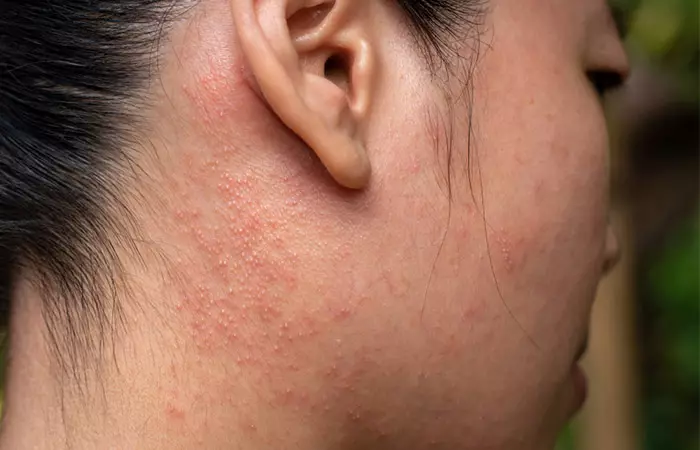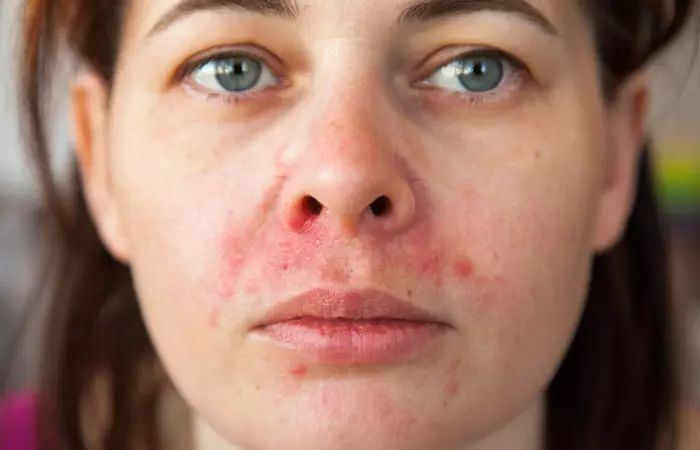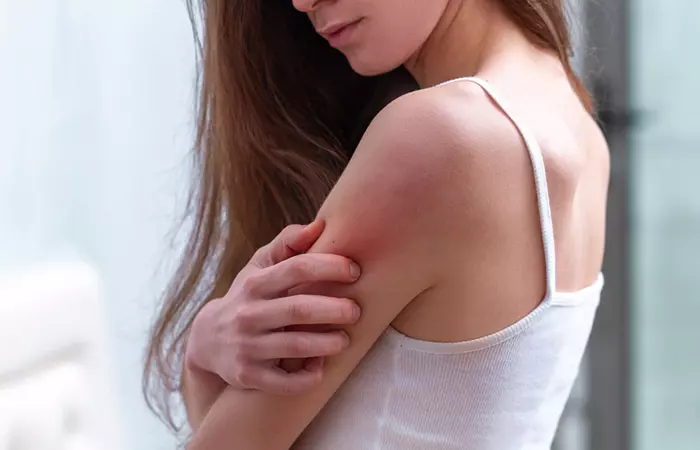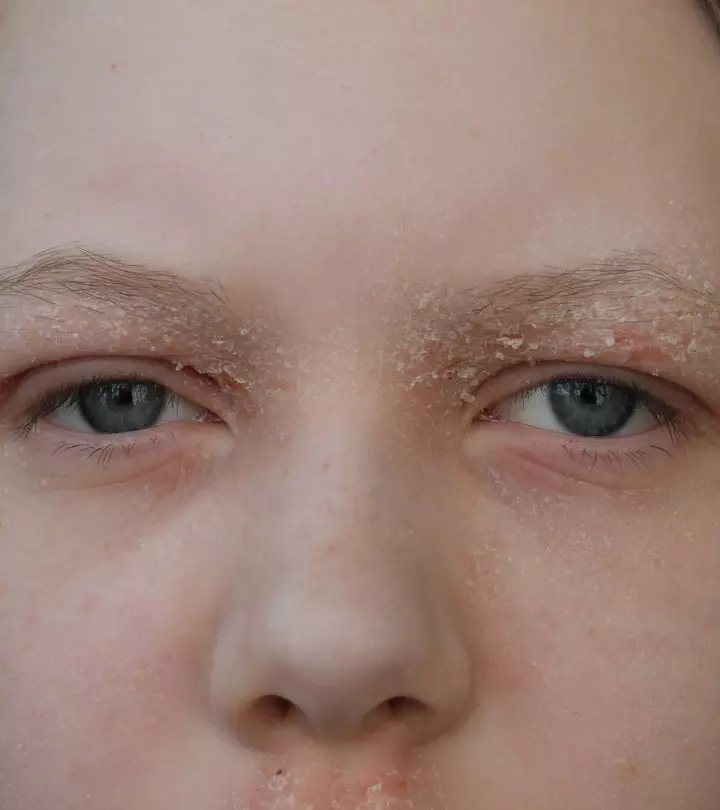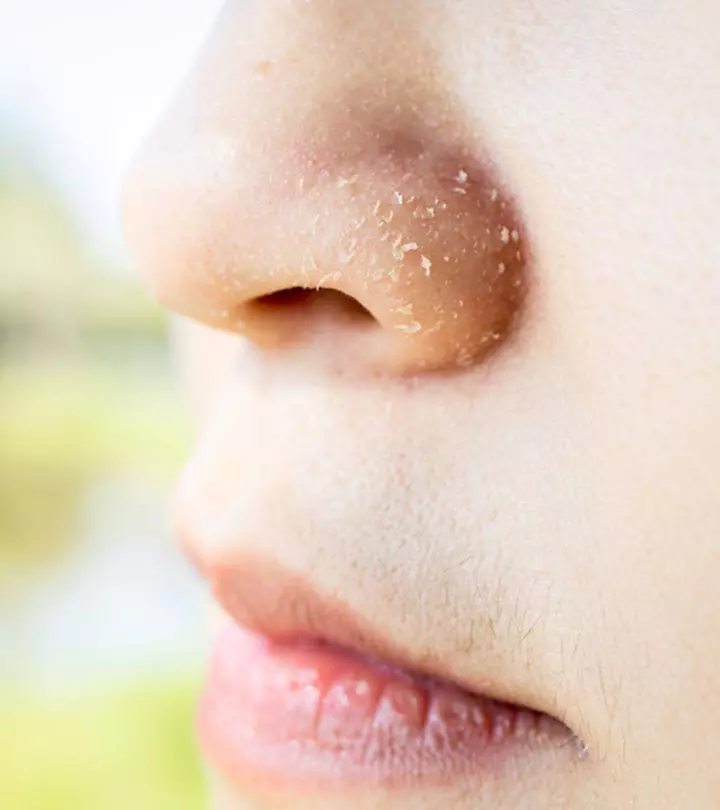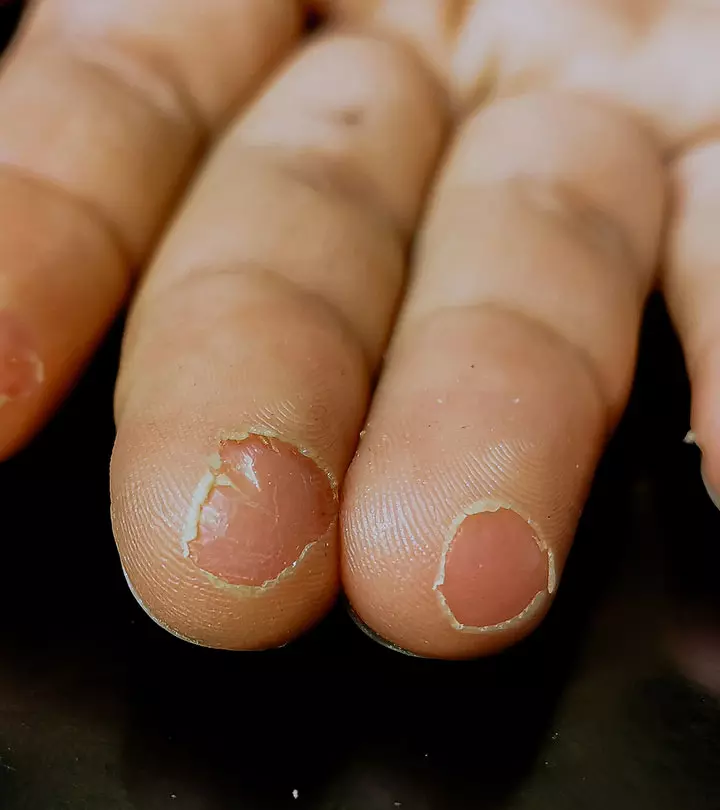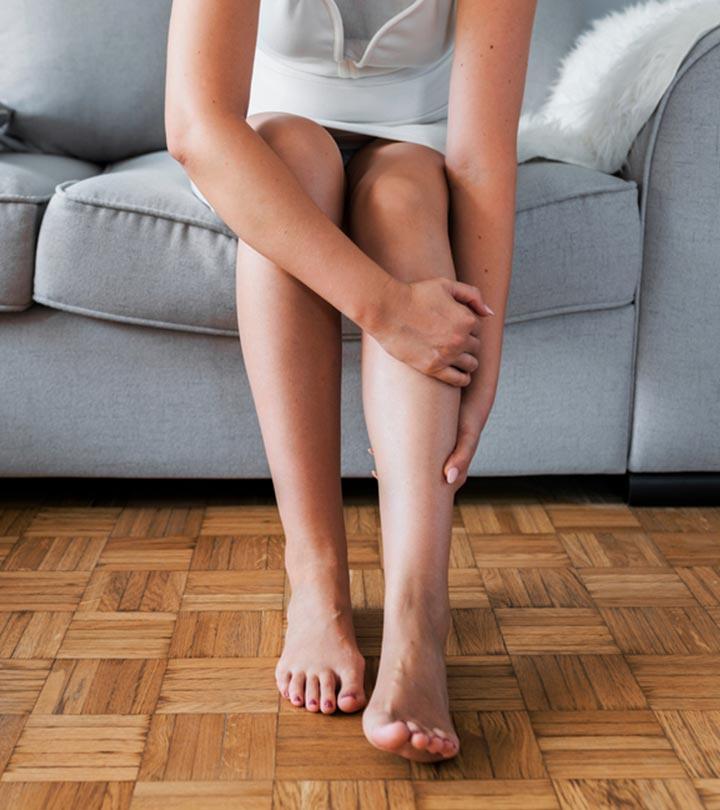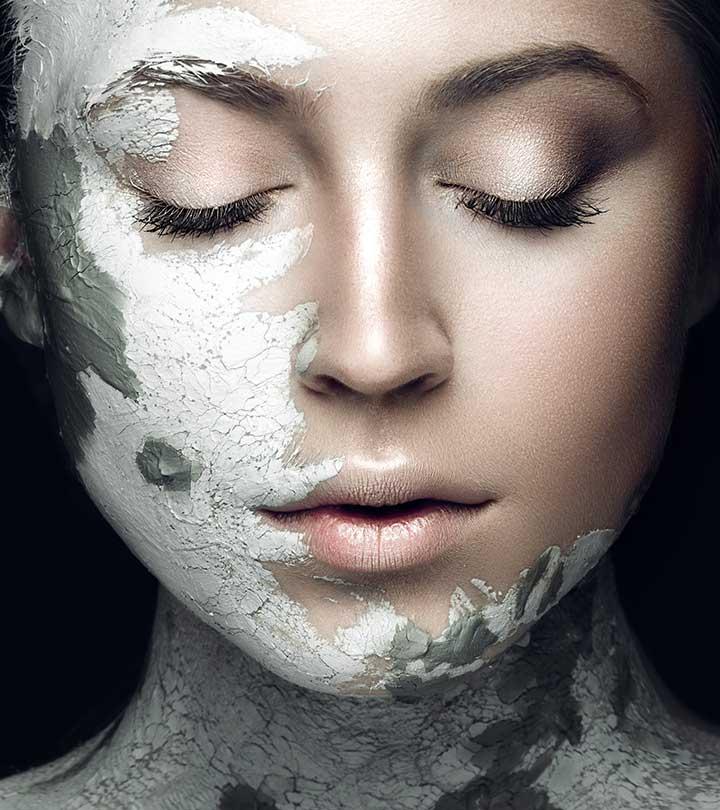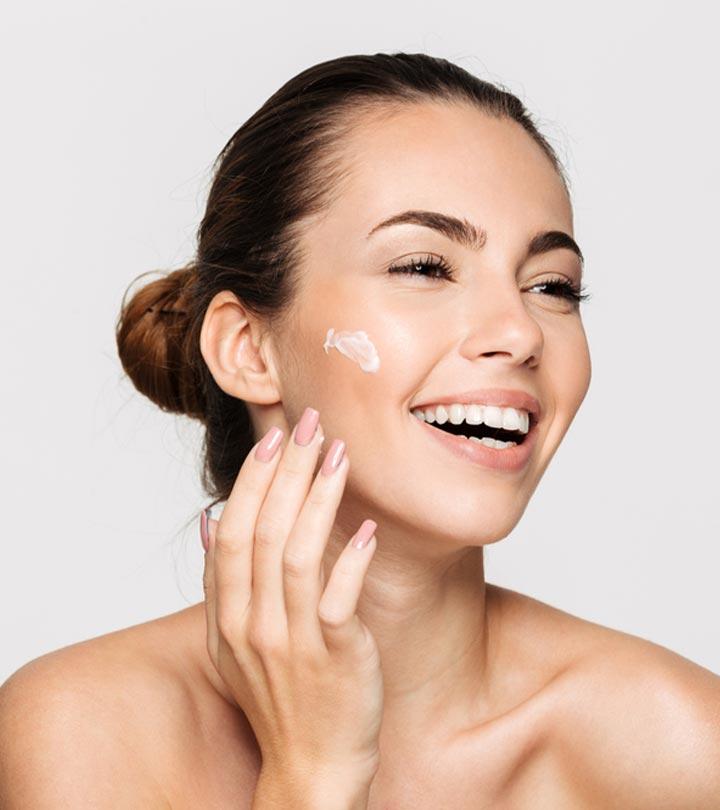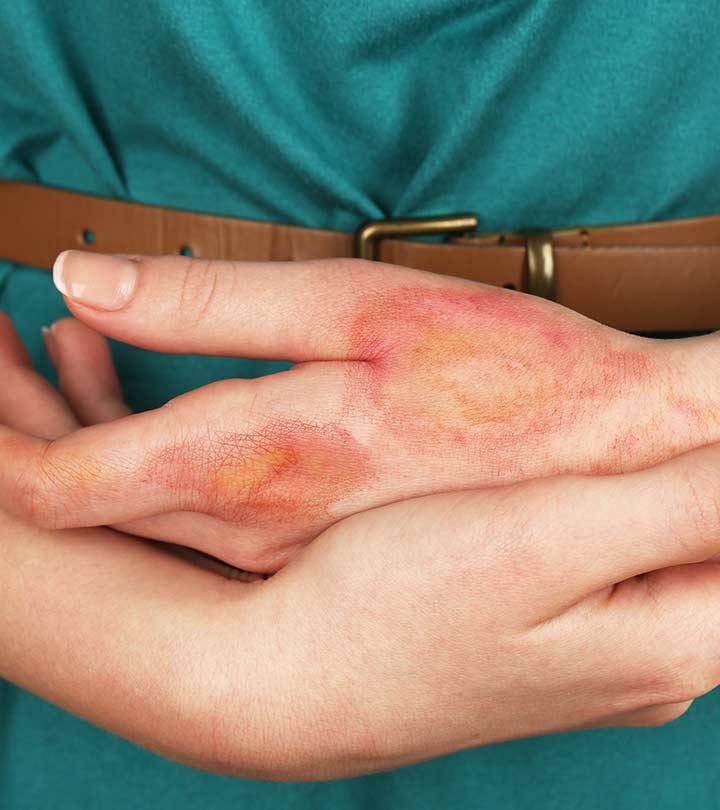What Causes Dry Itchy Skin? How Do You Treat It?
Identifying the underlying reason through the symptoms can help you find the right cures.

Image: Shutterstock
Many of us know the frustration of dry, itchy skin, especially during winter. This type of skin can look scaly and cracked all the time. This can be due to several reasons. Causes like climatic conditions, lifestyle issues, and other underlying skin conditions, such as psoriasis, can cause dry and itchy skin. Thankfully, it can be treated using home remedies and over-the-counter treatment options.
In this article, we will tell you everything you need to know about the various causes, risk factors, and treatments for dry and itchy skin. Keep reading to know more!
In This Article
Types And Causes Of Dry, Itchy Skin
Dry skin can happen to anyone at any age. It looks rough, scaly, or flaky. In some cases, it may lead to itching too. From the weather to the amount of moisture present in the skin, many reasons can lead to dry and itchy skin.
Dry skin may also lead to skin inflammations and rashes when scratched. This often leads to skin irritation or dermatitis.
A study included a total of 44,689 participants from 27 different nations with 21,887 (48.98%) men and 22,802 (51.02%) women. The findings revealed that 43.35% of the participants have experienced uncomfortable skin sensations, such as dryness, itchiness, or burning. Fungal skin infections (8.9%), acne (5.4%), and atopic dermatitis or eczema (5.5%) were found to be the most frequent conditions.
Let’s look at the most common causes of dry, itchy skin:
1. Contact Dermatitis
This condition is also called contact eczema. It develops when your skin comes in contact with an allergen, leading to an allergic reaction. Irritants like friction, occlusion, detergents, nickel, fragrance mix, chromium, shampoo, jewelry, hearing aids, and formaldehydei A strong-smelling, colorless, and gaseous chemical used to make many household products and in the manufacturing of many chemicals. can cause contact dermatitis. Poison ivy is considered the most common cause of allergic contact dermatitisi A non-contagious condition of painful skin inflammation that occurs after coming in contact with an allergen or irritant. in the United States (1).
2. Atopic Eczema
This condition is a result of abnormalities in the epidermisi The thin, outermost layer of skin that is visible to the eye and contains the melanin pigment. and immune system. It leads to dry and itchy skin. People with atopic eczema have sensitive skin. Environmental factors, genetics, and food hypersensitivityi An abnormal immune system reaction that occurs soon after consuming a particular food that an individual may be allergic to. may be the cause of atopic eczema (2). It most commonly occurs behind the ears or the area of the ear that meets the face.
 Did You Know?
Did You Know?3. Seborrheic Dermatitis
This condition occurs in areas with sebaceous glands that produce oil, including the ears. Usually, the lesions appear on the ears, face, scalp, upper chest, and back (3). The skin may turn red and crusty. This type of eczema in and around ears results in scaling, redness, and even crusty cracks.
4. Asteatotic Dermatitis
This condition results in dry and fissured skin. It occurs due to epidermal water loss (4). It appears mainly in the winter months due to dry conditions. It is also common in the elderly.
5. Athlete’s Foot
This fungal infection turn your feet dry and scaly. It is characterized by itching, flaking, and fissuring of the skin (5). The skin between the toes and all over the foot may turn soggy, red, dry, and white. Wearing occlusive (non-breathable) shoes for long periods can result in athlete’s foot. Even sharing washing facilities (like the showers at the gym) increases the risk of infection.
 Trivia
TriviaBesides these medical causes, factors like your lifestyle, health, age, and climate may also cause skin dryness. The signs and symptoms of dry and itchy skin vary depending on the cause. Read on to find more about the symptoms associated with it.
Signs And Symptoms Of Dry Skin
The symptoms accompanying dry skin vary depending on the cause. A few common signs and symptoms are:
- Itchiness
- Peeling
- Redness
- Flaking or scaling of the skin
- Cracked or rough skin
- Bumps, spots, or blisters
These are the few common symptoms you experience when you have dry and itchy skin. Since it may occur due to some underlying health conditions too, you must get it diagnosed before treating it. Find out more in the next section.
Diagnosis Of Dry, Itchy Skin
Dry skin is diagnosed by its appearance. Your doctor may ask for your medical history. They may physically analyze your skin and ask about the health issues that run in your family. Depending on the symptoms, your medical provider may prescribe tests like:
- Allergy skin test.
- Blood test to evaluate diabetes or kidney issues.
- Skin biopsy to test for skin conditions like eczema.
Dry skin can occur to anyone at any age. However, certain groups are more prone to it. Read on to find out the risk factors for dry and itchy skin.
Risk Factors For Dry And Itchy Skin
There are many factors that may increase your chances of dry skin. You may get dry and itchy skin if you:
- Live in a cold or dry climate.
- Have a family history of skin issues, kidney problems, or thyroid or hormone disorders.
- Have a job that makes your skin wet most of the time, like a swimming instructor.
- Are allergic to harsh detergents, soaps, or fragrances.
- Take long and hot showers.
- Are 40 or older.
Your treatment will be based on the diagnosis. Keep reading to learn about the treatments for dry and itchy skin.
Treatment For Dry, Itchy Skin
Both home remedies and medical treatments can relieve skin dryness and itching. If you consult a healthcare provider, you may be recommended to use moisturizers and prescribed some medications.
Prescription medicines for managing dry and itchy skin include:
- Steroids like hydrocortisone
- Antibiotics
- Topical antiseptics
- Antihistamines
- Moisturizing creams containing alpha-hydroxy acids or retinoids
You can also try out the following home remedies:
- Apply a moisturizer, lotion or cream that contains humectantsi Substances used in lotions, cleansers, hair products, and cosmetics that draw moisture into the skin and keep it hydrated and healthy. , ceramides, or emollients.
- Apply a cold compress to the affected area.
- Use warm water while taking a shower. Avoid using hot water for showering and washing your face, hands, etc.
- Pat your skin dry instead of rubbing it with a towel.
- Restrain from scratching the affected area.
- Use a humidifier to increase moisture in the air in your house.
- Wear gloves to protect your hands from household irritants.
A blogger shared their experience about using aloe vera gel to treat dry eczema skin in their blog. They said, “I personally don’t really trust aloe vera gel, that are bottled and available at pharmacies, for I know that they might contain some preservatives to enable longer shelf life. Since I have one aloe vera plant at home, I might as well use it ‘au naturel’ (i).”
After applying aloe vera for two weeks, their condition improved, as they described: “The eczema area improved greatly, thanks to the medication and the aloe vera gel. The colour around the area is almost back to normal and there’s no itchiness nor discomfort.”
Read the next section for some tips to prevent dry and itchy skin.
Prevention Tips For Dry, Itchy Skin
To prevent your skin from becoming dry and itchy, especially during winter, you can do the following:
- Limit your showers/baths to once every other day.
- Drink enough water.
- Avoid contact with harsh chemicals, soaps, fragrances, and detergents.
- Always keep your skin moisturized.
- Wash your face or take a bath only with lukewarm water.
- Use natural fiber clothing.
- Apply sunscreen whenever you step out.
- Stop smoking.
Do not scratch your skin when it itches as it may cause more irritation and even lead to infections. Consult a doctor if you find it difficult to manage.
When Should You See A Doctor?
Consult a dermatologist if:
- Your skin looks infected and becomes red and swollen.
- The area is painful to touch.
- Your skin itches constantly.
- The itching continues for weeks, even after following the self-care measures.
- You develop fever or night sweats.
Consult your doctor if none of the home remedies and over-the-counter treatment options show any improvement.
The Bottom Line
Dry and itchy skin is not a serious health concern, but it can be due to underlying health conditions and allergies. Sometimes, it can also be caused by other factors such as sunburn, windburn, skin sensitivity, dehydration, etc. Figuring out the reason behind your dry skin can help you manage and prevent it. In most cases, keeping your skin moisturized is the ultimate solution to manage it. However, you may consult a doctor if the skin dryness and itching persists despite taking various measures to control it.
Frequently Asked Questions
Is Vaseline good for dry itchy skin?
Yes, petroleum jelly is an occlusive that helps retain moisture in your skin and prevents dryness (8).
Can you use vinegar for dry itchy skin?
Yes, vinegar has antimicrobial and antiseptic properties that may reduce itchy, dry skin (9).
Does coconut oil help dry itchy skin?
Yes, coconut oil is a moisturizer that helps reduce dryness and flakiness. It is also used to manage skin conditions like eczema which causes dry and itchy skin (10).
Is rubbing alcohol good for dry itchy skin?
No, rubbing alcohol may dry out your skin further and aggravate your itching.
Key Takeaways
- While dry skin is common during winters, it may be a sign of underlying conditions like eczema or athlete’s foot.
- Genes, environment, or harsh soaps and detergents can contribute to rough, cracked, itchy skin.
- Avoid dry and itchy skin by moisturizing, applying sunscreen, and drinking enough water.
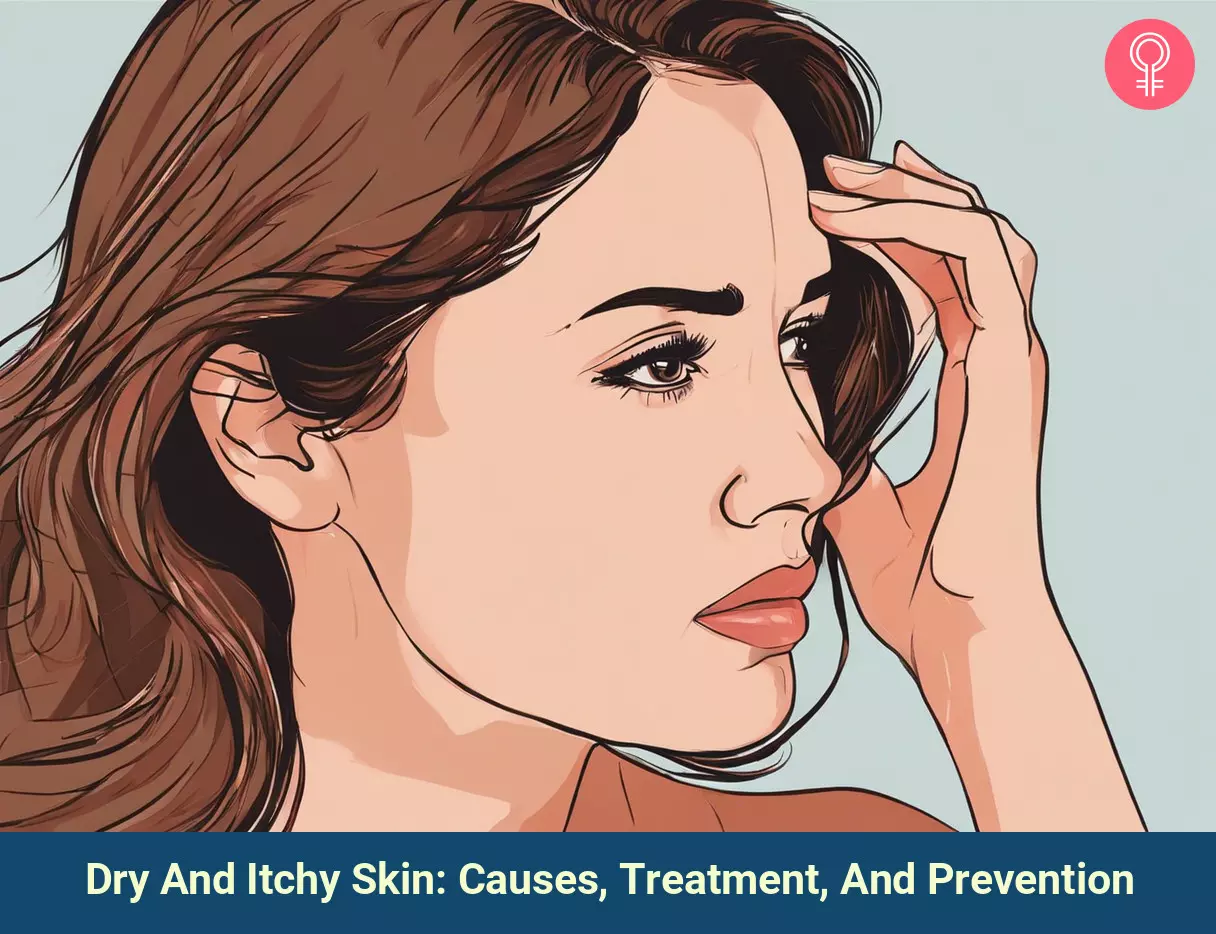
Image: Stable Diffusion/StyleCraze Design Team
Watch this video to know how to make natural home remedies for dry and itchy skin. Get relief from the discomfort of dry skin with simple ingredients from your kitchen!
Personal Experience: Source
StyleCraze's articles are interwoven with authentic personal narratives that provide depth and resonance to our content. Below are the sources of the personal accounts referenced in this article.
i. My Eczema Treatment ( Part 3 ): Pure Aloe Vera Saphttps://myorganicjourney11.blogspot.com/2012/09/my-eczema-treatment-part-3-pure-aloe.html
References
Articles on StyleCraze are backed by verified information from peer-reviewed and academic research papers, reputed organizations, research institutions, and medical associations to ensure accuracy and relevance. Read our editorial policy to learn more.
- Contact Dermatitis
https://www.ncbi.nlm.nih.gov/books/NBK459230/ - Atopic Dermatitis
https://www.ncbi.nlm.nih.gov/books/NBK448071/ - Seborrheic Dermatitis
https://www.ncbi.nlm.nih.gov/labs/pmc/articles/PMC2888552/ - Asteatotic Dermatitis
https://www.ncbi.nlm.nih.gov/books/NBK549807/ - Athlete\’s Foot
https://www.ncbi.nlm.nih.gov/labs/pmc/articles/PMC2907807/ - Oatmeal In Dermatology A Brief Review
https://pubmed.ncbi.nlm.nih.gov/22421643/ - Water Hydration And Health
https://www.ncbi.nlm.nih.gov/labs/pmc/articles/PMC2908954/ - The Role of Moisturizers in Addressing Various Kinds of Dermatitis: A Review
https://www.ncbi.nlm.nih.gov/pmc/articles/PMC5849435/ - Acetic acid and the skin: a review of vinegar in dermatology
https://www.researchgate.net/publication/353709885_Acetic_acid_and_the_skin_a_review_of_vinegar_in_dermatology - Medicinal Benefits of Coconut Oil
https://www.researchgate.net/publication/268805677_Medicinal_benefit_of_coconut_oil
Read full bio of Dr. Sanober Pezad Doctor
Read full bio of Anjali Sayee
Read full bio of Monomita Chakraborty





